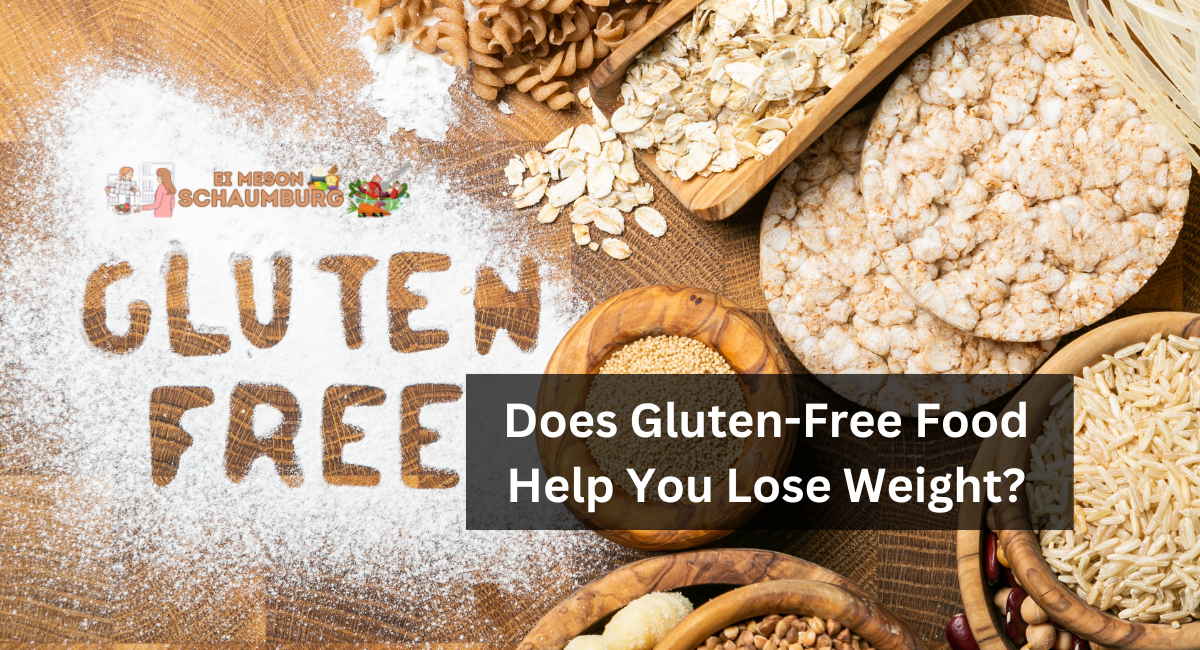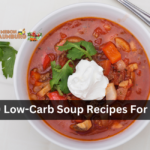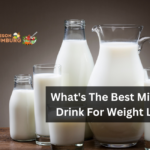Celebrities have claimed for years that eating without gluten is the most successful way to lose weight. Some adhere to the diet because of celiac disease, while others believe it is healthier. But does gluten-free food help you lose weight?
What Is A Gluten-Free Food?
Gluten, a protein in bread, and several other grains are eliminated from a gluten-free diet. It involves consuming only gluten-free whole foods, such as fruits, vegetables, poultry, and eggs, and gluten-free processed foods, such as gluten-free bread and pasta.
Rajagopal explains, “Gluten is a protein found naturally in some foods, but they may also include it during processing for texture.” Gluten can be used as a binder and flavoring, sometimes found in unexpected foods. In addition to pizza, pasta, cereal, and baked goods, gluten can also be found in soy sauce, ice cream, certain medications, cosmetic products, and nutritional supplements.
Some believe a gluten-free diet excludes all carbohydrates, but this is false. Numerous carbohydrate-containing foods, including rice, potatoes, and legumes, do not contain gluten.
Gluten-Free Food And Weight Gain
While there are many claims that gluten-free diets are the best way to lose weight, you may experience the contrary if you give up gluten. This is notably true for celiac disease patients.
Gluten damages your digestive tract and stops you from getting nutrients from food if you have celiac disease. After eliminating gluten, your body will recover, and you can assimilate those nutrients. That is highly beneficial for your health. However, this could also result in weight gain.
To prevent excessive weight gain, keep the following in mind:
1. Portion size: You may have become accustomed to consuming large portions because the lack of absorption did not affect your weight. Consider ways to reduce your portion sizes.
2. Food choice: If you are accustomed to consuming now off-limits carbohydrates, you may seek satisfaction from higher-fat foods. Despite the importance of lipids, you may choose low-fat foods to maintain or lose weight.
3. Hidden sugar: Many packaged foods and even homemade recipes compensate for the absence of gluten by adding sugar. It can lead to excessive quantities of sugar and, consequently, calories. Check labels and recipes for ways to reduce sugar consumption.
4. Exercise: Adding moderate exercise to your routine can help you keep a healthy weight, and exercise has numerous health benefits.
The research is inconclusive on whether avoiding gluten can aid in weight loss. Ultimately, what you eat is more than what you don’t eat regarding weight loss and maintaining a healthy BMI.
Diet Free Of Gluten And Weight Loss
Not everyone who observes a gluten-free diet has celiac disease or even gluten sensitivity without celiac disease. According to research, these individuals may experience tremendous weight loss success on a gluten-free diet.
In addition to reducing weight, individuals without celiac disease also reduce their waist circumference. This measurement is significant because abdominal weight gain has been linked with a higher likelihood of cardiovascular disease, hypertension, and diabetes.
Effects Of Eating Healthier
Researchers have observed a distinct correlation between a gluten-free diet and weight loss in non-celiac individuals, but the cause of this weight loss remains unknown. Substituting gluten-containing foods with gluten-free alternatives would have no direct effect on weight.
Some experts believe the impact results from people’s overall healthier diets. Those who adhere to a gluten-free diet (even without a medical need) may be highly self-motivated to monitor their dietary intake. In addition to avoiding gluten, these people may also avoid high-calorie foods and limit their fat and calorie consumption. These actions could be the cause of the significant weight loss rates. In other words, these individuals could still lose weight even though they ate gluten-free foods because they would consume healthier overall.
Are Gluten-Free Foods Healthy?
Although keeping a suitable weight is essential for your overall health, it is not the only factor. The food you consume must be nutritious and conducive to your desired weight.
Fruits and vegetables are naturally gluten-free, as are lean meat and protein. A diet focused on those foods can be nutritious and healthful.
However, gluten-free foods can also add high-fat and fried foods and a variety of processed foods designed to be gluten-free and high in calories, which can cause weight gain.
Focusing solely on avoiding gluten can also cause you to lose essential nutrients. Researchers have discovered that gluten-free products frequently lack crucial nutrients, vitamins, and minerals, including:
- Fiber
- Calcium
- Vitamin D
- Vitamin B12
- Folate
- Zinc
- Magnesium
Moreover, processed gluten-free foods are high in saturated fat and hydrogenated fatty acids (which behave similarly to saturated fat in the body). A high fat intake can contribute to weight gain, but saturated fat poses additional health risks because it may increase the risk of heart disease.
Who Should Eat A Gluten-Free Food?
Here are some points about eating a gluten-free diet:
People With Celiac Disease
People with celiac disease, an immune reaction to grain that causes the body to attack the small intestine and produce abdominal pain, nausea, bloating, and diarrhea, must adhere to a gluten-free diet. People with celiac disease cannot tolerate any form of gluten and must stick to a gluten-free diet for the remainder of their lives. If you have celiac illness and take gluten by accident, you will likely experience the same symptoms as before you went gluten-free.
People With Gluten Sensitivity
Non-celiac sensitivity to gluten, also known as gluten intolerance, is an additional disorder that may prompt a person to eliminate gluten from their diet. “We don’t have an accurate term for gluten intolerance or an easy way to explain it,” says Rajagopal. “We know that when certain people consume gluten-containing foods, they become ill.”
It is essential not to assume that digestive irritation is caused by gluten. If you suspect you have a gluten intolerance, Rajagopal suggests consulting a physician and a registered nutritionist to find the cause of your symptoms.
“There is no test for gluten intolerance, so that we may try an elimination diet, such as the low FODMAP diet,” Rajagopal explains. This transient diet eliminates many foods irritating the digestive tract, including wheat-based products. If gluten is the cause of the irritation, you may experience a reduction in symptoms, including:
- Bloating
- Constipation or diarrhea
- Fatigue
- Gas
- Stomach pain
- People who are allergic to wheat
Wheat-allergic individuals should avoid certain gluten-containing foods, but not because of the gluten. Wheat causes an immune response in their bodies, manifesting as a rash, a headache, or sneezing. They can still consume gluten-containing cereals such as barley and rye.
Can You Go Gluten-Free Food To Lose Weight?
People who adopt a gluten-free diet lose weight, typically because they eliminate many gluten-containing manufactured foods and refined carbohydrates. Suppose you cease eating gluten to lose weight. In that case, watching your portion sizes, exercising regularly, and consuming various whole foods, such as fruits, vegetables, and lean proteins is essential.
The increasing number of gluten-free processed foods and munchies poses a challenge for those attempting to consume a gluten-free diet. Healthcare providers believe these easy, less nutritious, and high-calorie foods may contribute to a trend in which gluten-free dieters, particularly adolescents with celiac disease, are at a greater risk for weight gain and a higher BMI.
Thank you for reading….










